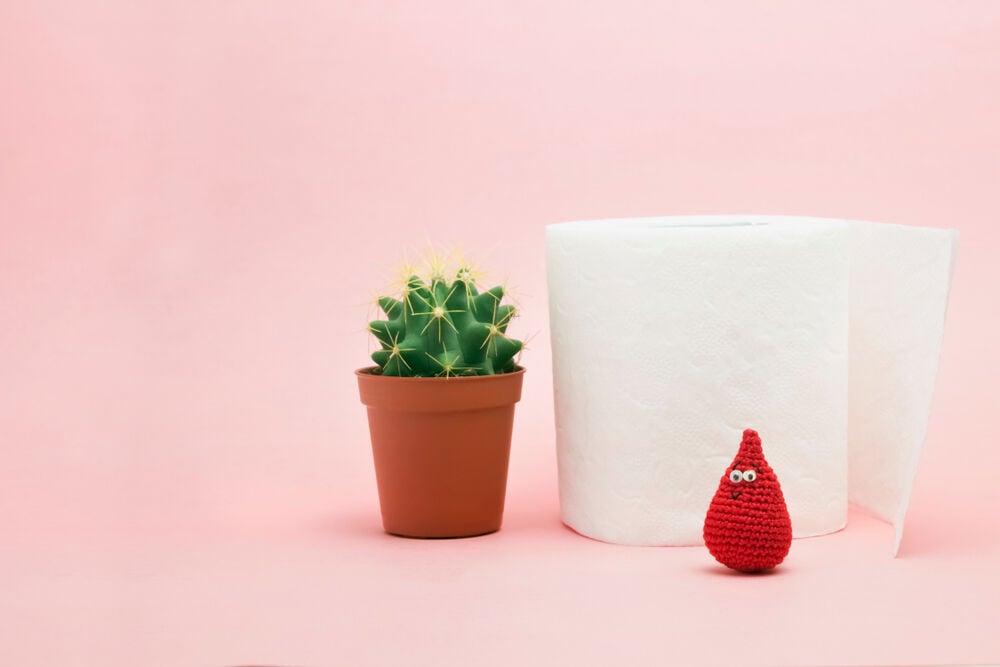It’s a relatively common complication for women after pregnancy, especially following a vaginal delivery. Fortunately, Flo’s here to help you find much needed relief from postpartum hemorrhoids. Read on for more info about how to get rid of postpartum hemorrhoids.
-
Tracking cycle
-
Getting pregnant
-
Pregnancy
-
Help Center
-
Flo for Partners
-
Anonymous Mode
-
Flo app reviews
-
Flo Premium New
-
Secret Chats New
-
Symptom Checker New
-
Your cycle
-
Health 360°
-
Getting pregnant
-
Pregnancy
-
Being a mom
-
LGBTQ+
-
Quizzes
-
Ovulation calculator
-
hCG calculator
-
Pregnancy test calculator
-
Menstrual cycle calculator
-
Period calculator
-
Implantation calculator
-
Pregnancy weeks to months calculator
-
Pregnancy due date calculator
-
IVF and FET due date calculator
-
Due date calculator by ultrasound
-
Medical Affairs
-
Science & Research
-
Pass It On Project New
-
Privacy Portal
-
Press Center
-
Flo Accuracy
-
Careers
-
Contact Us
Postpartum Hemorrhoids: Your Biggest Questions Answered


Every piece of content at Flo Health adheres to the highest editorial standards for language, style, and medical accuracy. To learn what we do to deliver the best health and lifestyle insights to you, check out our content review principles.
Postpartum hemorrhoids symptoms
Also known as piles, hemorrhoids develop when the hemorrhoid veins in the lower portion of your rectum and anus become enlarged and swollen. When postpartum hemorrhoids affect the veins inside your rectum, it’s considered an internal condition. If they develop under the skin around your anus, it’s considered external. Symptoms of hemorrhoids include:
- Bright red, bloody stools
- Pain and discomfort in your anal area
- Painful bowel movements
- Lumps or itching near your anus
- Mucus on your underwear or toilet paper (after wiping)
- A desire to poop again, even after having a bowel movement
Exact causes of postpartum hemorrhoids

Approximately 25 to 35 percent of pregnant women experience postpartum hemorrhoids at some point. The likelihood of this occurring is even greater for those who’ve had a vaginal delivery. However, it is still possible to get postpartum hemorrhoids after a C-section.
Take a quiz
Find out what you can do with our Health Assistant
During pregnancy, hormonal changes and an increase in intra-abdominal pressure both encourage the development of postpartum hemorrhoids. Hormonal fluctuations slow down the speed at which food passes through your digestive system. The pressure that your growing uterus exerts against your intestines inhibits this process further.
Constipation is also common during pregnancy, and happens to be another contributing factor for hemorrhoids. (Note that constipation is usually defined as having less than three bowel movements per week.) When you’re constipated, you tend to strain and push while trying to defecate. This enlarges the veins in your rectum, upping your chances of forming hemorrhoids.
Do postpartum hemorrhoids go away on their own?
You’ll be happy to hear that in most cases, postpartum hemorrhoids go away within a few days. There are certain at-home treatments and dietary changes which may offer faster relief.
Postpartum hemorrhoids treatment
Beneficial lifestyle adjustments, preventative measures, and home remedies for postpartum hemorrhoids include:
- Eating fiber-rich foods
This includes fresh vegetables and fruits like prunes, whole-grain cereals or bread, and beans.
Dehydration tends to harden your stools, making bowel movements more difficult.
- Avoiding coffee, tea, and soda
These beverages are also capable of aggravating constipation, and in turn, triggering postpartum hemorrhoids.
- Doing light exercise
Steer clear of strenuous physical activity and get your workouts by taking walks, for example.
- Taking a warm bath
Have your usual relaxing soak in the tub or consider a sitz bath (i.e., a shallow bath that covers your perineum). Do this 2 to 4 times a day to shrink hemorrhoids.
Always wipe from front to back after using the bathroom. Do so gently, and use a damp piece of toilet paper to prevent irritation.
- Going when you need to go
Never ignore your body’s urge to have a bowel movement. Delaying the process causes your stools to harden and worsens constipation.
- Applying witch hazel
Keep a bottle of witch hazel in the refrigerator and carefully apply it to your postpartum hemorrhoids with a cotton ball.
- Cooling yourself down
Place an ice pack wrapped in a clean towel to the affected area to soothe pain and reduce swelling.
A few more things to keep in mind when you’re experiencing postpartum hemorrhoids:
- Always keep your perineum clean and dry.
- Try gently pushing your hemorrhoids back inside.
- Sit on a pillow, cushion, rocking chair, or recliner to relieve pressure on your rectum.
- Begin doing Kegel exercises to strengthen your pelvic floor muscles, decreasing your chances of bleeding or rectal prolapse.
The following OTC and prescription remedies may help alleviate postpartum hemorrhoids:
- Hemorrhoid creams, sprays, suppositories, and ointments deliver short-term relief from symptoms such as pain, itching, and bleeding. They contain low doses of medication which aren’t readily absorbed into your bloodstream, making them safe for pregnant or breastfeeding women. However, you should always consult your doctor before trying any new products.
- Prescription stool softeners sometimes do the trick, but note that they might take a few days to work.
- Paracetamol can, to some extent, relieve pain associated with postpartum hemorrhoids.
- Remember that laxatives should only be taken if prescribed by your doctor when you’re pregnant. Furthermore, you should never take a higher dose than recommended.
- Avoid any pain medications with codeine, which actually exacerbates constipation problems. Similarly, the use of ibuprofen and other NSAIDs (e.g., naproxen or aspirin) could intensify postpartum hemorrhoid bleeding.
When to see a doctor about postpartum hemorrhoids
Postpartum hemorrhoids usually improve with simple home remedies. But in some cases, a prescription for stronger medication may be required. Seek medical assistance if:
- Your hemorrhoids haven’t cleared up after 7 days of at-home treatments.
- You suffer from recurring hemorrhoids.
- You experience symptoms such as fever, chills, and malaise, in addition to hemorrhoids.
- Pus leaks from your hemorrhoids.
If a month of conservative treatment hasn’t solved the problem, your doctor might recommend a more aggressive approach. This includes simple outpatient procedures, or in severe cases, hemorrhoid surgery.
Takeaway
When it comes to dealing with constipation and postpartum hemorrhoids, just an ounce of prevention can make all the difference. Try increasing your fiber intake, drinking plenty of water, and exercising regularly. It’s also wise to listen to your body when it’s time to have a bowel movement and to avoid standing for long periods of time.
While most instances of postpartum hemorrhoids do go away on their own, know the key warning signs to ensure you seek medical help when necessary.


Hey, I'm Anique
I started using Flo app to track my period and ovulation because we wanted to have a baby.


The Flo app helped me learn about my body and spot ovulation signs during our conception journey.


I vividly
remember the day
that we switched
Flo into
Pregnancy Mode — it was
such a special
moment.
Real stories, real results
Learn how the Flo app became an amazing cheerleader for us on our conception journey.




